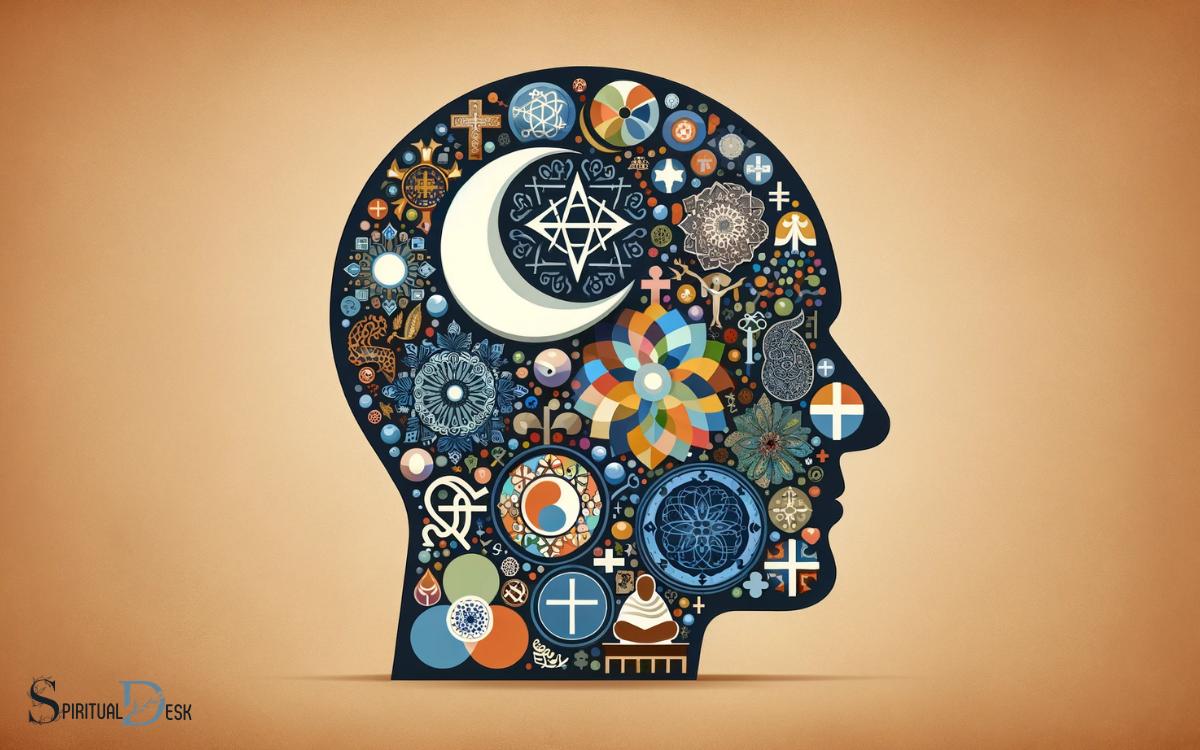Is Anxiety a Spiritual Problem: Everything Need to Know!
Anxiety may have spiritual dimensions for some individuals, as personal beliefs and practices can influence one�s experience of anxiety.
It�s not uncommon for people to question whether their anxiety has spiritual roots or implications, and for some, addressing spiritual concerns can be a key component of managing their anxiety.
It�s important to understand that while spirituality can play a role in anxiety, it is also a psychological condition that may require professional treatment.
Spiritual beliefs and practices can shape how individuals perceive and cope with anxiety. For some, spirituality provides a framework for understanding their experiences, offering comfort and guidance.
However, it�s crucial to recognize that anxiety is a recognized mental health disorder that can be caused by a variety of biological, psychological, and environmental factors.
It�s essential to approach anxiety with a holistic perspective that includes, but is not limited to, spiritual considerations.
Exploring spirituality�s role in anxiety can lead to a more nuanced approach to mental well-being.

Key Takeaway
Exploring the Spiritual Dimensions of Anxiety
| Factor | Description | Relevance to Anxiety |
|---|---|---|
| Spiritual Beliefs | Individual convictions and worldviews relating to the divine or existential. | May shape perception and interpretation of anxiety symptoms. |
| Spiritual Discrepancies | Conflicts between one’s actions and spiritual values. | Can contribute to feelings of guilt or anxiety. |
| Spiritual Practices | Activities like prayer, meditation, or communal worship. | Often used as tools for managing anxiety and finding peace. |
| Psychological Treatment | Professional therapy or medication. | Necessary for treating the clinical aspects of anxiety. |
| Support Systems | Family, friends, or faith communities. | Provide emotional support and can influence coping strategies. |
Understanding Anxiety in a Spiritual Context

Understanding anxiety in a spiritual context requires a comprehensive exploration of the interplay between mental and emotional well-being, and the individual�s spiritual beliefs and practices.
In this context, anxiety can be viewed as a complex interplay of psychological, emotional, and spiritual factors.
While mental and emotional well-being are often addressed through psychological and therapeutic interventions, the spiritual aspect is equally significant and cannot be overlooked.
For many individuals, their spiritual beliefs and practices play a crucial role in how they perceive and cope with anxiety.
It is essential to understand how one�s spiritual beliefs and practices influence their understanding of anxiety, their coping mechanisms, and their overall well-being.
By integrating psychological, emotional, and spiritual perspectives, a more holistic approach to understanding and addressing anxiety can be achieved.
The Role of Faith and Belief Systems

In considering the role of faith and belief systems in the context of anxiety, it is imperative to recognize the profound impact these factors have on an individual�s perception and management of their mental and emotional well-being.
Faith and belief systems can serve as sources of comfort, strength, and hope for individuals experiencing anxiety.
They provide a framework for understanding the purpose of suffering and offer guidance on how to navigate through challenging times.
Below is a table illustrating how different faith and belief systems may influence one�s experience and management of anxiety:
| Faith/Belief System | Influence on Anxiety |
|---|---|
| Christianity | Encourages reliance on God for peace and strength |
| Buddhism | Emphasizes mindfulness and acceptance of suffering |
| Islam | Promotes reliance on prayer and trust in the will of Allah |
| Atheism | Focuses on self-reliance and seeking support from within and the community |
Practices for Cultivating Inner Peace

To cultivate inner peace, individuals can engage in mindfulness practices to promote self-awareness and emotional regulation.
Mindfulness involves paying attention to the present moment without judgment, allowing individuals to acknowledge and accept their thoughts and feelings.
Additionally, practices such as meditation and deep breathing exercises can help calm the mind and reduce anxiety.
Journaling is another effective way to cultivate inner peace, as it allows individuals to reflect on their emotions and experiences, gaining insight and understanding.
Furthermore, engaging in activities that bring joy and relaxation, such as spending time in nature or practicing yoga, can contribute to a sense of inner peace.
By incorporating these practices into daily life, individuals can nurture a greater sense of tranquility and emotional well-being.
Exploring the Connection Between Mind and Spirit

As individuals continue to cultivate inner peace through mindfulness practices and self-reflection, they may begin to explore the profound connection between the mind and spirit, seeking to understand the interplay of these essential aspects of human experience.
This exploration often involves delving into the inner workings of the mind and its influence on spiritual well-being.
One way to conceptualize this connection is through the following table:
| Mind | Spirit | Connection |
|---|---|---|
| Thoughts and Emotions | Essence of Being | Influence and Reflect |
| Cognitive Processes | Inner Peace | Alignment and Clarity |
| Mental Health | Spiritual Growth | Impact and Nourishment |
Understanding the intersection of the mind and spirit can provide valuable insights into how thoughts, emotions, and cognitive processes can impact one�s spiritual well-being and vice versa.
This exploration can lead to a deeper understanding of the self and a more harmonious integration of mind and spirit.
Seeking Support From Spiritual Communities

Frequently, individuals experiencing anxiety find solace and guidance by seeking support from spiritual communities.
This can be a valuable resource for those struggling with anxiety, providing a sense of belonging and understanding.
When seeking support from spiritual communities, individuals may benefit from:
- Community and Connection: Spiritual communities offer a sense of belonging and connection, which can alleviate feelings of isolation often associated with anxiety.
- Spiritual Practices: Engaging in spiritual practices such as meditation, prayer, or mindfulness can provide individuals with tools to manage their anxiety and find inner peace.
- Compassionate Guidance: Spiritual leaders and community members often offer compassionate guidance and a non-judgmental space for individuals to express their struggles and receive support.
Seeking support from spiritual communities can complement traditional therapy and medical treatment, providing holistic care for individuals experiencing anxiety.
Conclusion
It is clear that anxiety can be viewed through a spiritual lens, with faith and belief systems playing a significant role in managing inner turmoil.
Cultivating inner peace through spiritual practices and seeking support from spiritual communities can aid in addressing the connection between mind and spirit.
Ironically, while anxiety may be seen as a spiritual problem, it also presents an opportunity for individuals to deepen their spiritual understanding and growth.






